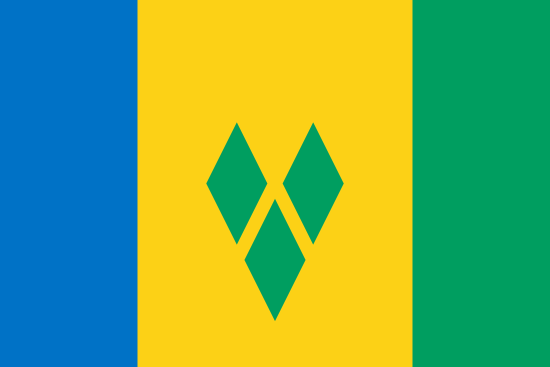
Health Insurance in Saint Vincent and the Grenadines, America
Information expatriation
Capital City: Kingstown
Total area: 388 km2
Population: 120,000
Money: Currency Converter
Time Zone: List of time zones by country
Calling Code: +1 784 XXX
Practical Information:
Wikipedia Saint Vincent and the Grenadines
Health Product: Travel Insurance and Health insurance
Health Insurance information and Sanitary Risk: World Health Map
BLOG: Expat Health insurance Information
Here is a brief description of the healthcare system in the country:
· Saint Vincent and the Grenadines has a public healthcare system that is funded through taxes and government expenditure. It provides universal access to primary care services.
· Public hospitals, health centers, and clinics are located throughout Saint Vincent and the Grenadines. They offer services like general medicine, maternal/child care, immunizations, and treatment of minor illnesses and injuries free of charge.
· For specialized care needs, patients may be referred overseas to facilities in other Caribbean countries, the United States, or Canada through established public medical programs.
· A small private healthcare sector also operates with private doctors, pharmacies, laboratories, and medical facilities available for an out-of-pocket fee.
· Leading health concerns include non-communicable diseases associated with lifestyle such as diabetes, hypertension, heart disease, and cancers.
· Basic sanitation infrastructure helps prevent communicable illnesses from being major issues.
· Healthcare resources are adequate for the population though specialists may be scarce at times.
· Life expectancy is around 75 years, on par with regional averages.
· So in summary, Saint Vincent and the Grenadines offers universal primary coverage through tax-funded public facilities while private supplemental care is also accessible. The focus is on preventative and primary services.
Here are some key health considerations for expatriates living in the country:
· Access primary care through public hospitals, health centers and clinics free of charge.
· Purchase private health insurance to cover costs of specialist referrals overseas or private treatment options.
· Maintain insurance through your home country as well if staying temporarily. Local private plans exist too.
· Follow basic safety precautions against tropical disease vectors like mosquitoes and ticks.
· Boil or filter tap water from rural systems as a precaution against contaminants.
· The hot, humid climate can impact health - stay hydrated and avoid overexertion.
· Bring needed prescription medications as availability may be limited locally.
· Mental healthcare support options may be scarce; establish healthy support networks.
· Medical evacuations abroad require planning and strong insurance coverage.
· Learn about and respect cultural norms in healthcare settings.
· Monitor chronic conditions closely due to scarce specialist access.
· Proper health insurance, preventative care strategies and social support networks are important for managing healthcare abroad, given tropical climate risks and limited specialist resources locally.
